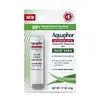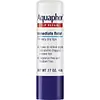What's inside
What's inside
 Key Ingredients
Key Ingredients

No key ingredients
 Benefits
Benefits

 Concerns
Concerns

 Ingredients Side-by-side
Ingredients Side-by-side

Octyldodecanol
EmollientRicinus Communis Seed Oil
MaskingButyrospermum Parkii Butter
Skin ConditioningBeeswax
Emulsion StabilisingHelianthus Annuus Seed Wax
Skin ConditioningGlycerin
HumectantHydrogenated Castor Oil
EmollientPolyglyceryl-4 Diisostearate/Polyhydroxystearate/Sebacate
EmulsifyingAloe Barbadensis Leaf Juice Powder
Skin ConditioningSimmondsia Chinensis Seed Oil
EmollientHelianthus Annuus Seed Oil
EmollientWater
Skin ConditioningOctyldodecanol, Ricinus Communis Seed Oil, Butyrospermum Parkii Butter, Beeswax, Helianthus Annuus Seed Wax, Glycerin, Hydrogenated Castor Oil, Polyglyceryl-4 Diisostearate/Polyhydroxystearate/Sebacate, Aloe Barbadensis Leaf Juice Powder, Simmondsia Chinensis Seed Oil, Helianthus Annuus Seed Oil, Water
Octyldodecanol
EmollientRicinus Communis Seed Oil
MaskingBeeswax
Emulsion StabilisingBis-Diglyceryl Polyacyladipate-2
EmollientButyrospermum Parkii Butter
Skin ConditioningHelianthus Annuus Seed Wax
Skin ConditioningHydrogenated Castor Oil
EmollientPanthenol
Skin ConditioningDimethicone
EmollientWater
Skin ConditioningTocopheryl Acetate
AntioxidantSimmondsia Chinensis Seed Oil
EmollientTocopherol
AntioxidantAscorbyl Palmitate
Antioxidant
 Reviews
Reviews

Ingredients Explained
These ingredients are found in both products.
Ingredients higher up in an ingredient list are typically present in a larger amount.
Beeswax is natural wax produced by honey bees and can be synthetically created. It consists mainly of fatty acid esters and long-chain alcohols.
In cosmetics, beeswax is a emollient. Due to its waxy structure, it creates a protective barrier. This barrier prevents water from evaporating off the skin.
This may not be a good ingredient for oily skin. We recommend speaking with a professional if you have concerns.
Beeswax cannot be removed with water, but can be taken off with an oil cleanser.
Beeswax is also antiseptic and contains vitamin A.
Learn more about BeeswaxThis ingredient is also known as shea butter. It is an effective skin hydrator and emollient.
Emollients help soothe and soften your skin. It does this by creating a protective film on your skin. This barrier helps trap moisture and keeps your skin hydrated. Emollients may be effective at treating dry or itchy skin.
Shea butter is rich in antioxidants. Antioxidants help fight free-radicals, or molecules that may harm the body. It is also full of fatty acids including stearic acid and linoleic acid. These acids help replenish the skin and keep skin moisturized.
While Shea Butter has an SPF rating of about 3-4, it is not a sunscreen replacement.
Shea butter may not be fungal acne safe. We recommend speaking with a professional if you have any concerns.
Learn more about Butyrospermum Parkii ButterHelianthus Annuus Seed Wax is created from the common sunflower.
Sunflower seed wax is made up of long chain non-glyceride esters, a small amount of fatty alcohols, and fatty acids.
This ingredient is often used to enhance the texture of products. The fatty acid properties also help hydrate the skin.
Learn more about Helianthus Annuus Seed WaxHydrogenated Castor Oil is created by adding hydrogen to castor oil. This helps stabilize the castor oil and raises the melting point. At room temperature, hydrogenated castor oil is solid.
Castor Oil helps moisturize the skin. It is rich in a fatty acid called ricinoleic acid. This fatty acid helps prevent moisture loss on the skin. This helps keep your skin soft and hydrated. Ricinoleic acid also has anti-inflammatory and pain reducing properties.
As a wax-like substance, Hydrogenated Castor Oil acts as an emollient. Emollients help keep your skin stay soft and smooth by creating a barrier. This barrier helps trap moisture.
Hydrogenated Castor Oil may not be fungal-acne safe. We recommend speaking with a professional.
Learn more about Hydrogenated Castor OilOctyldodecanol is a fatty alcohol. It is primarily used to enhance the texture of products.
As an emulsifier, Octyldodecanol helps prevent the oils and waters from separating. It also prevents ingredients from creating foam when shaken.
Octyldodecanol is created by reducing fatty acid to an alcohol.
Due to its high molecular weight, it does not get absorbed into the skin.
Learn more about OctyldodecanolRicinus Communis Seed Oil is the INCI name for castor oil.
Castor Oil helps moisturize the skin. It is rich in a fatty acid called ricinoleic acid. This fatty acid helps prevent moisture loss on the skin. This helps keep your skin soft and hydrated. Ricinoleic acid also has anti-inflammatory and pain reducing properties.
Besides hydrating the skin, castor oil is also used to hydrate hair. By keeping the hair shaft moisturized, breakage is decreased. More studies are needed to show castor oil's effective on stimulating hair growth.
Castor oil is created by cold-pressing castor seeds and then purifying the oil with heat. It was used in Ancient Egypt as fuel in lamps and to help treat eye irritation.
The term 'fragrance' is not regulated in many countries. In many cases, it is up to the brand to define this term. For instance, many brands choose to label themselves as "fragrance-free" because they are not using synthetic fragrances. However, their products may still contain ingredients such as essential oils that are considered a fragrance.
Learn more about Ricinus Communis Seed OilThis oil comes from the seeds of the desert shrub called Jojoba. It is more commonly known as jojoba oil, a non-comedogenic oil.
Jojoba oil does not contain fragrance and has many fatty-acids, making it a great soothing ingredient.
It also contains Vitamin E, a great moisturizing ingredient. Vitamin E is also an antioxidant and protects your skin against oxidative damage.
This ingredient humectant properties, meaning it helps draw moisture from the air. This helps keep your skin hydrated.
While jojoba has antibacterial properties, it is only able to kill some strains of bacteria.
Studies also show it helps in wound healing. In fact, Indigenous cultures have used jojoba as a moisturizer and to help treat burns for centuries.
Fun fact: Jojoba oil similar to natural human skin sebum, so it has a great effect on dry skin. It is also promising with helping to regulate sebum production.
Due to its fatty acid content, Jojoba oil may not be fungal acne safe. We recommend speaking with a professional if you have any concerns.
Learn more about Simmondsia Chinensis Seed OilWater. It's the most common cosmetic ingredient of all. You'll usually see it at the top of ingredient lists, meaning that it makes up the largest part of the product.
So why is it so popular? Water most often acts as a solvent - this means that it helps dissolve other ingredients into the formulation.
You'll also recognize water as that liquid we all need to stay alive. If you see this, drink a glass of water. Stay hydrated!
Learn more about Water